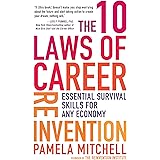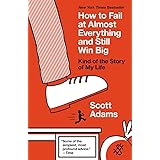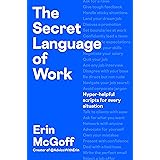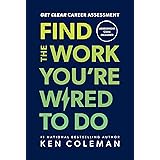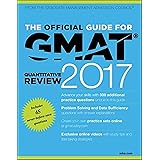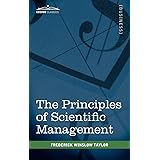Navigating your first corporate job can often feel like stepping onto a new planet with its own unique gravity, language, and unwritten rules. As highlighted in the insightful video above, many early-career professionals encounter challenges they simply weren’t prepared for. This article expands on those crucial insights, offering a deeper dive into the essential strategies and mindset shifts needed to not just survive but truly thrive in your first corporate career role.
Cultivating Strategic Mentorship in Your Corporate Career
One of the most potent catalysts for early career acceleration is identifying and cultivating mentorship. While onboarding typically assigns a buddy or designates a manager for guidance, true growth often stems from aligning with top performers. Emily, a seasoned HR professional with over seven years in the workforce, underscores this, advocating for a proactive approach.
1. **Identify High Performers:** Look beyond official channels. Observe who consistently delivers exceptional results, who commands respect, and whose work quality stands out. These individuals possess an intrinsic understanding of organizational dynamics and technical excellence. 2. **Shadow and Observe:** Request opportunities to shadow their processes, attend meetings they lead, or even just observe their interaction styles. Understanding their workflow, decision-making frameworks, and problem-solving methodologies provides invaluable tacit knowledge. 3. **Initiate Informal Mentoring:** A formal mentorship program is excellent, but often, the most impactful relationships begin organically. Invite your chosen mentor for a casual coffee or lunch. Frame your request around learning from their experiences and insights, rather than an explicit demand on their time. Show genuine curiosity about their career trajectory and challenges. This establishes a rapport that can naturally evolve into a more structured mentoring relationship.
The objective is to absorb their operational best practices and strategic thinking, accelerating your own development far beyond what conventional training might offer. Learning from those who excel ensures you internalize effective strategies from the outset.
Mastering Workplace Dynamics: Beyond High School Drama
The corporate environment, despite its professional facade, can often surprise newcomers with its complex social dynamics, which Emily candidly compares to high school cattiness. Gossip and exclusion are not exclusive to adolescent years; they permeate certain office cultures, creating an uncomfortable atmosphere.
1. **Recognize the Signs:** Be aware of conversational patterns that steer towards negativity about colleagues. Exclusionary cliques, whispered conversations, or passive-aggressive remarks are all red flags. 2. **Maintain Professional Boundaries:** As Emily wisely advises, if colleagues gossip *with* you, they will likely gossip *about* you. Your professional brand is intrinsically linked to the company you keep and the conversations you engage in. Optically, aligning yourself with a negative faction can severely damage your reputation and perceived integrity. 3. **Counter Negativity with Kindness:** A powerful strategy for disengaging from gossip is to pivot to positive affirmations about the targeted individual. When confronted with negative commentary, offering a sincere compliment about the person’s strengths or a positive observation about their character effectively redirects the conversation and positions you as a person of integrity. This not only protects your personal brand but also subtly discourages negative interactions directed at you in the future. Remaining authentic and kind, even in challenging social scenarios, reinforces your values and builds a stronger personal brand.
Strategic Lunch Breaks and Financial Prudence
Early in a corporate career, the drive to prove oneself can lead to detrimental habits, such as foregoing lunch breaks. Emily recounts her own experience of feeling compelled to be perpetually “heads down,” which ultimately led to burnout within six months and a missed opportunity for crucial relationship building.
1. **Prioritize Breaks for Well-being:** Lunch breaks are not merely a legal entitlement; they are essential for cognitive rejuvenation and preventing burnout. Stepping away from your desk, even for a brief period, can significantly enhance productivity, creativity, and overall job satisfaction. Remember, your paid hours factor in these breaks as part of your compensation, so utilize them fully. 2. **Leverage Breaks for Networking:** Lunch is a prime opportunity for informal networking and building rapport with team members. These casual interactions foster stronger professional relationships, which are critical for cross-functional collaboration and career progression. Shared meals facilitate organic conversations that reveal insights into team dynamics, company culture, and potential collaboration opportunities. 3. **Financial Planning for Early Career Salaries:** Emily highlights the significant financial drain of purchasing lunch daily. With estimates around $20 per day for lunch and an additional $5 for coffee, coupled with commute costs (e.g., $8 each way), daily expenses can quickly accumulate to substantial amounts. For someone on a starting salary, which Emily notes was “literally nothing” in her first role, these costs represent a considerable portion of disposable income.
Consider packing your lunch or exploring more economical options. This simple adjustment can yield substantial savings over time, especially crucial when navigating the realities of an entry-level salary without the benefit of extensive benefits or high compensation. Strategic financial management, even in small ways, lays a strong foundation for long-term fiscal health.
Practicalities of Corporate Life: From Commutes to Office Essentials
The transition into a corporate environment often overlooks practical, day-to-day logistics that can significantly impact comfort and efficiency. These seemingly minor details, if not addressed, can lead to unnecessary stress.
1. **Optimize Your Commute:** Commuting does not need to be a fashion show. Emily advocates for functional footwear (sneakers) and comfortable clothing for the journey, with professional attire changed upon arrival at the office. This small adjustment protects your professional garments, ensures comfort during travel, and saves time on worrying about pristine appearances during unpredictable weather or long commutes. Everyone, from entry-level staff to senior executives, employs such practical strategies. 2. **Assemble an Emergency Desk Kit:** A well-stocked desk is a strategic asset. Include items such as feminine hygiene products, hand sanitizer, hand cream, dental floss, mouthwash, contact lens solution/glasses cleaner, and protein snack bars. These supplies address personal needs, prevent small inconveniences from becoming major disruptions, and can even position you as a helpful colleague, fostering positive social interactions. Emily’s anecdote of a “panic…period moment” underscores the value of such preparedness. 3. **Observe Office Etiquette, Especially Food:** Certain foods, particularly fish, release pungent odors when reheated in communal office microwaves. This can be disruptive and inconsiderate to colleagues. Opt for foods that are cold-friendly or that do not produce strong aromas when warmed. Maintaining a pleasant shared environment contributes to positive workplace morale.
Networking Beyond the 9-5 and the Reality of Work “Friends”
Building a robust professional network extends beyond formal meetings and day-to-day tasks. The social fabric of a corporate environment is often woven during after-hours events, and understanding the nature of workplace relationships is paramount.
1. **Embrace After-Work Socials:** Initially, Emily avoided after-work events due to a lengthy commute and a desire to get home. However, she later realized these gatherings were critical for forging deeper relationships and identifying new mentors. She credits attending such an event with landing her first promotion. Many critical connections and mentorship opportunities blossom in these informal settings, offering a less structured environment for showcasing personality and building rapport. These interactions humanize colleagues, creating a stronger sense of team and mutual understanding that can be invaluable for career progression. 2. **Distinguish Between Work Friends and True Friends:** A common misconception is that all colleagues with whom you share a friendly rapport are “friends.” Emily offers a clear distinction: unless you socialize outside of work *and* the conversation does not revolve around work, that individual is primarily a colleague. While pleasant workplace relationships are vital, it’s crucial to maintain a professional awareness. Colleagues, even friendly ones, will prioritize their career advancement, which may, in rare instances, involve actions that are not in your best interest. This pragmatic perspective ensures you navigate office politics with appropriate caution and protect your professional standing.
The Imperfection of Professionalism and Advocating for Your Value
Early career professionals often grapple with the intense pressure to be perfect, leading to significant anxiety over perceived mistakes. This mindset can hinder growth and prevent individuals from fully engaging in their roles.
1. **Embrace Imperfection:** As Emily confesses from her seven years as a recruiter, she makes “minimum one” mistake a day. This normalizes error as an inherent part of the learning and working process. The pressure to be flawless is unrealistic and counterproductive. Instead, focus on learning from mistakes, documenting solutions, and developing resilience. Everyone makes errors; the differentiating factor is how one responds to them. 2. **Question the “Company Kool-Aid”:** Companies often cultivate a strong culture, emphasizing unique values and a “special sauce.” While a positive culture is beneficial, “drinking the Kool-Aid” entirely can lead to stagnation. Emily shares her experience of staying at a company where she was “grossly underpaid” because she bought into their value proposition. This mentality can blind individuals to better opportunities, fair compensation, or growth avenues elsewhere. Maintaining a healthy level of skepticism and regularly evaluating your career trajectory against market value and personal aspirations is crucial for long-term career health. 3. **Proactive Salary Negotiation:** Emily’s most direct financial advice is unequivocal: “If you are not asking for a raise every single year, you are losing money.” Given the rising cost of living, static salaries effectively diminish your purchasing power. Many early-career professionals shy away from salary negotiations due to discomfort or fear of being perceived as greedy. However, advocating for fair compensation is a fundamental aspect of professional self-worth and financial well-being. Prepare your case by documenting achievements and researching market rates for your role and experience level. Remember, your compensation reflects your value, and proactive negotiation ensures you are adequately rewarded for your contributions.
Essential Skills and Strategic Self-Promotion
Beyond soft skills and interpersonal dynamics, foundational technical competencies and the art of visible achievement are critical for success in any corporate career.
1. **Master Foundational Technical Skills:** Emily admits she “grossly underestimated” the importance of basic technical skills, particularly Microsoft Excel and PowerPoint, spending valuable time catching up. Many entry-level roles involve data reporting and analysis, making proficiency in these tools non-negotiable. Investing 40 minutes in YouTube tutorials or online courses before starting a new role can significantly boost efficiency and allow you to focus on higher-value tasks. Understanding pivot tables, basic VBA, and advanced formatting can set you apart and streamline your workflow. 2. **Strategic Self-Promotion:** A common fallacy is believing that good work inherently gets noticed. Emily debunks this, stating, “Nobody is paying attention to you…nobody’s paying attention to the good things that you do either.” Everyone is busy with their own responsibilities. To ensure your contributions are recognized for promotions and raises, proactive self-promotion is essential. This doesn’t mean boasting; it means strategically communicating your achievements. Emily’s method involves sending brief, impactful emails to her leadership team summarizing her weekly accomplishments. This consistent visibility ensures that when evaluation time comes, your contributions are clearly documented and top of mind for decision-makers, solidifying your reputation as a high-performing asset to the organization and advancing your corporate career.
These nuanced insights, shared with candid honesty, are invaluable for anyone embarking on or navigating their corporate career journey.
Still Got Questions for Your Corporate Journey?
What is mentorship and why is it important in a corporate career?
Mentorship involves learning from experienced colleagues who can share their knowledge and best practices. It’s important because it can significantly speed up your professional development and help you understand how the organization truly works.
How should I handle gossip or negative talk in the office?
It’s best to avoid participating in office gossip, as it can damage your professional reputation. If confronted with negativity, try to gently redirect the conversation by offering a positive comment about the person being discussed.
Why are lunch breaks important, and how can I save money on them?
Lunch breaks are crucial for preventing burnout and allow for mental rejuvenation. They also offer opportunities for informal networking. To save money, consider packing your lunch instead of buying it daily, as frequent purchases can add up significantly.
What are some practical tips for daily corporate life, like commuting or desk essentials?
For commuting, wear comfortable shoes and clothes, changing into professional attire at the office. Keep an emergency desk kit with personal hygiene items and snacks. Also, be mindful of strong food odors when reheating food in shared office microwaves.
Why is it important to attend after-work social events?
After-work social events are important for building stronger relationships with colleagues and leaders outside of formal meetings. These informal settings can help you find mentors, make valuable connections, and even lead to career opportunities like promotions.


